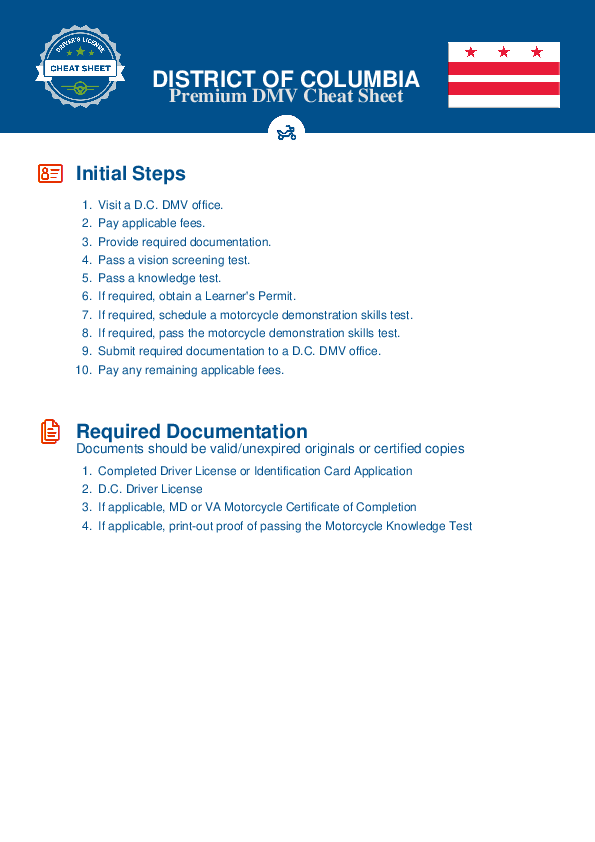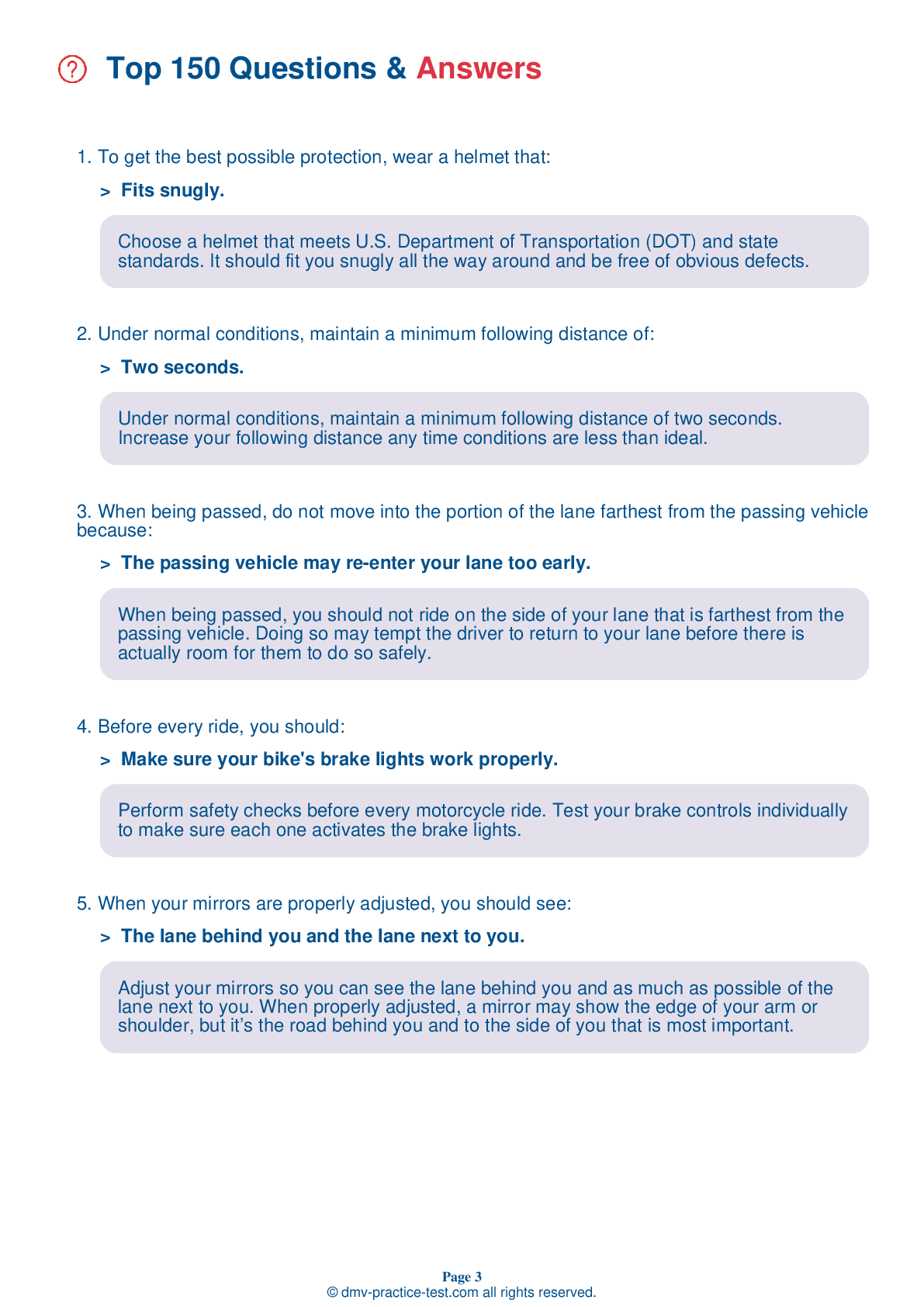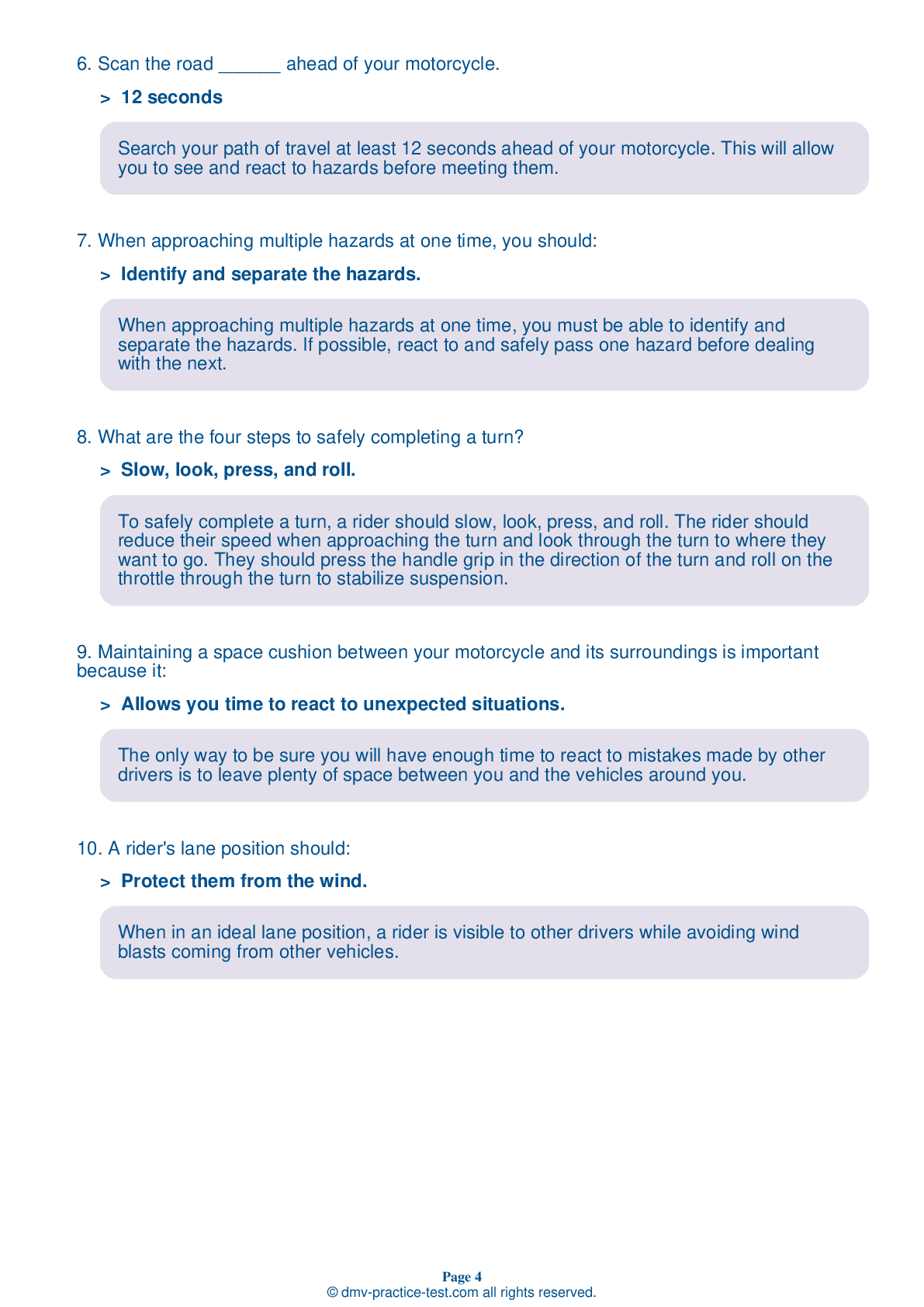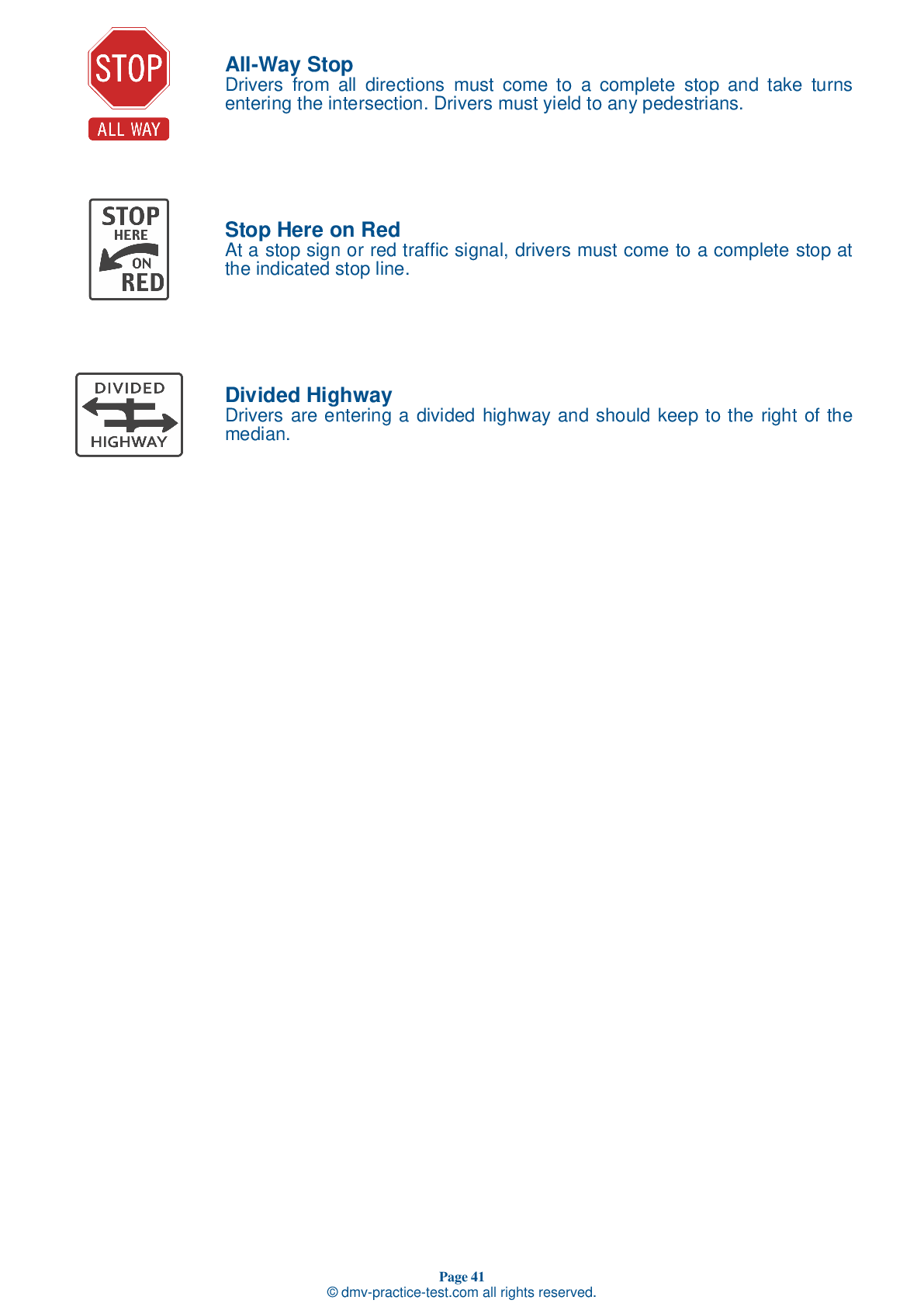Motorcycle Test | License DC 2024 | FREE Online Practice! #12 Page 2 of 4
Take this FREE motorcycle test (license in DC 2024) to check your knowledge of the road rules. To improve your results, download a motorcycle handbook online, study theory, and practice for free on our website. Still worried about how to get a motorcycle license in District Of Columbia in 2024? Check our website for more sample tests, train as much as possible, and boost your grades!
7 . Your knees should be:
Keep your knees against the gas tank to help with your balance as you turn the motorcycle.
8 . In general, when parked on the road, a motorcycle should be:
If parking in a parallel parking space next to a curb, it is generally best to position the motorcycle at an angle with the rear wheel to the curb. It should be noted that some cities have ordinances that require motorcycles to be parked parallel to the curb.
9 . Maintaining a space cushion between your motorcycle and its surroundings is important because it:
The only way to be sure you will have enough time to react to mistakes made by other drivers is to leave plenty of space between you and the vehicles around you.
10 . When riding with a passenger, you should do all of the following, except:
Because of a passenger's additional weight, a motorcycle will respond more slowly with a passenger on board than with just one occupant. With a passenger, you should travel a bit more slowly than you normally would, start slowing sooner than you normally would, and increase your following distance. Always warn your passenger of any special conditions ahead.
11 . Before starting a turn, a motorcycle rider should change gears to:
It is best to change gears before starting a turn. Shifting gears while in the turn can cause a sudden change in power to the rear wheel, causing a skid. If you must change gears while in a turn, change gears smoothly to best prevent skidding.
12 . Your lane position should help you:
A properly chosen lane position should protect your lane from other drivers while communicating your intentions to them.
See the exact questions that will be on the 2024 District Of Columbia DMV exam.
99.2% of people who use the cheat sheet pass the FIRST TIME
Jeneen was tired of paying $5/gallon. She got herself a scooter that required the motorcycle license. She studyed the motorcycle test cheat sheet and passed her test the next day!
Christopher tells us how he knew nothing prior to obtaining the motorcycle study guide, and he only got one question wrong because he clicked on the wrong answer by mistake.



